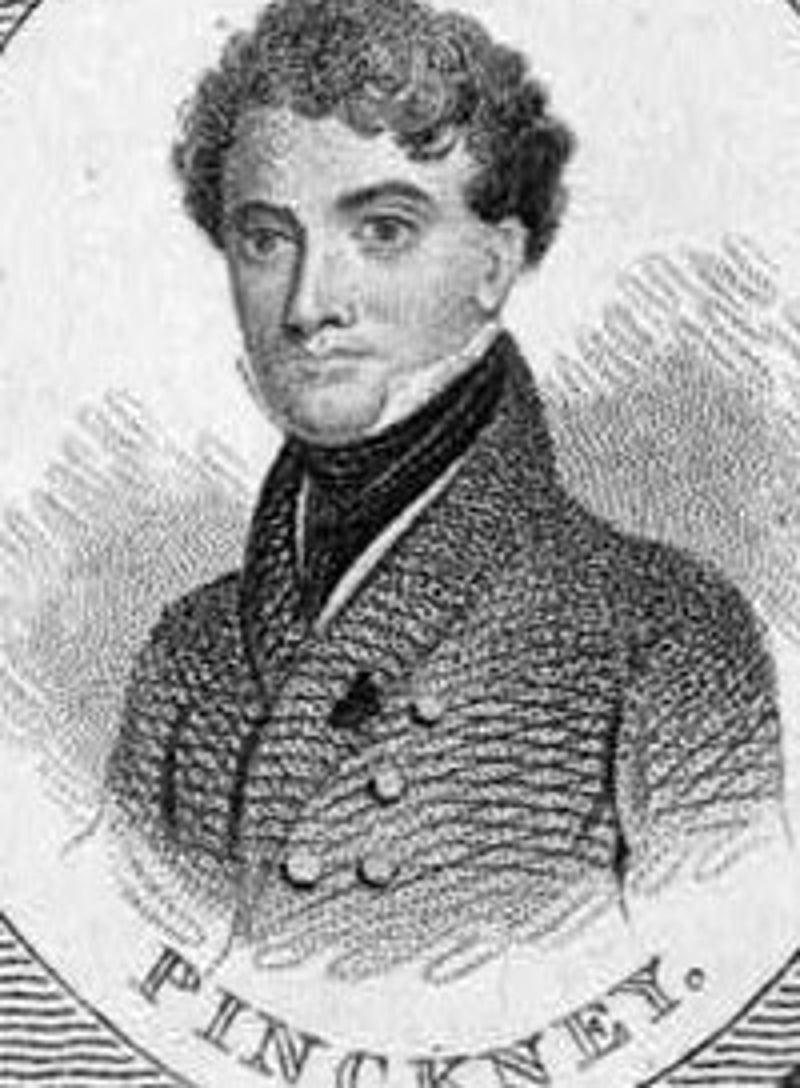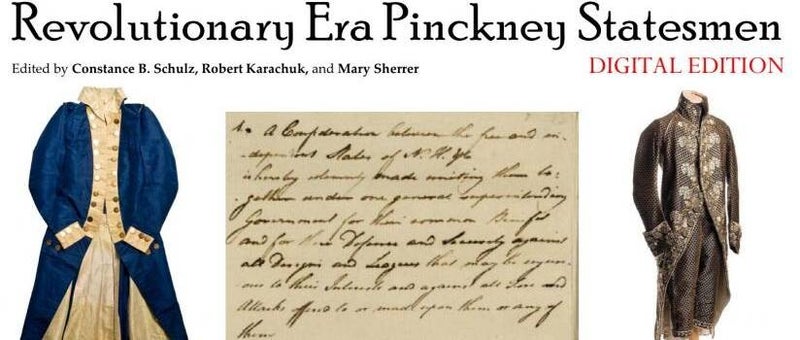Who was Thomas Pinckney?
Pinckney was born in Charleston, SC in 1750 to Charles and Eliza Pinckney. It is noted that the Pinckney family was "One of the leading families of colonial South Carolina and the early republic, the Pinckneys of Charleston were witnesses to—and often active participants in—many of the defining customs and transforming events of the early national South."6. His classmates in England often referred to him as "The Little Radical" 7. His family was extremely well-off, and he received his education along with his brother in England. His parents lived in South Carolina while Thomas and his brother remained in England while Thomas was 3-24. He came returned to America seemingly as soon as conflict began. It is likely that his lineage and family support in South Carolina had a great deal to do with his Patriot support as soon as he was back in America. He was married in 1779 to Elizabeth Motte and had six children.4 . He played a large role in agriculture in South Carolina, along with the rest of his family.7. Pinckney's letters to his sister Harriott are closely studied when evaluating his involvement in the Revolution. We see through Thomas's actions and family involvement in the state that his motive for independence from Great Britain came from a line of strength and success in his family history in South Carolina. Growing up and watching those thrive around him in the colonies, and specifically SC, undoubtedly helped him to want to support the Patriot cause.


BEFORE, DURING, AND AFTER WAR
Prior to the war- Pinckney received education in England at Westminster School and Christ College in Oxford. He studied law at The Middle Temple. He went back to Charleston in 1774, and immediately began to advocate for patriotism. 6.
During the war- Pinckney was a general then commander for the South Carolina Regiment as soon as the fighting began. He bounced between South Carolina, Virginia, and North Carolina for different missions. When the British came to Charleston, they burned his plantation, and he later advocated greatly for the defense of Charleston against the British. When General Lincoln had to surrender Charleston to the British, Pinckney was on another mission in the interior and was not taken as a prisoner of war, although 5000 were. He served as Horatio Gates aide-de-camp after this. To end his military career, his leg was shattered by a musket ball at the Battle of Camden and he was unable to fight following this. 6
After the war- He defended Gates, although they were defeated at the Battle of Camden where he was injured. He served in the SC House of Representatives. Pinckney remained on his plantation and was elected as Governor of South Carolina. He was over the SC state convention and was later appointed as US minister to Great Britain. 6. In 1794, he was appointed envoy extraordinary to Spain. In 1796, he returned to SC and was elected for the House of Representatives in November of 1797. He retired from Congresss in 1801 but was later a major general in the War of 1812. In retirement, he was invested in agriculture by " using dikes to reclaim saltwater marshes for rice cultivation. In 1825, he became president general of the national Society of the Cincinnati. On November 2, 1828, Pinckney died in Charleston. "6.
Quotations

"for you may depend upon their being no fighting wherever I am." -Pinckney to his sister Harriet 6
He was often on garrison duty at the beginning of his career. 6. This shows his early duties did not necessarily incorporate much fighting or conflict. In writing this, he is almost reassuring his sister that he himself is not involved in fighting and is just standing guard or performing other activities.

"Each of these three South Carolina men played a leading role in military, political, diplomatic, and economic affairs on the state and national levels during and after the American Revolution."7
This is in reference to Pinckney, his brother Charles Cotesworth, and their cousin Charles in reference to the Pinckney papers that were published. This quotation showcases that the roots ran deep in South Carolina, and they had great hope, investment, and passion for South Carolina and America as a whole in an independent sense. In referencing all three of the relatives, it is clear that this is a family affair and they are quite prevalent in South Carolina.

"Pinckney came from a wealthy family. He had little to gain—at least personally—and most everything to lose by fighting the British in what many perceptive people believed was an utterly hopeless cause. If Pinckney had nursed his shattered leg and remained at home, rather than return to service as he did, who could have blamed him?The answer is that he would have blamed himself. He had joined the Continental Army in 1776 and had committed himself, like many others about whom we know much less, to a cause greater than himself. And so he mounted a horse and returned to war, and saw that war through to an improbable victory." 8
This text highlights that Pinckney did not necessarily need to fight, and this was literally built into his personality to stand up for what he believed in because of the ways he had been able to grow and flourish from what his family had been given in America. His roots in this state, and in the colonies as a whole, provided him with a great understnading for what independence meant, and it is clear that this is what he craved.
Create Your Own Website With Webador